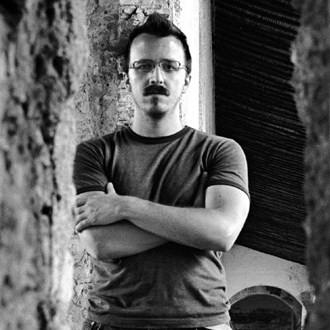En las últimas semanas hemos presenciado dos ataques preocupantes a la comunas venezolanas en el estado de Lara. Primero, el 3 de diciembre David Díaz, vocero electo de la Comuna Ana Soto, fue detenido y acusado de haber "invadido" a tierras privadas como parte de su activismo hacía la construcción y expansión de un a nueva Ciudad Socialista Ana Soto.
Luego, el Tribunal Supremo de Justicia anuló a la Carta Agraria otorgada por el mismo Presidente Hugo Chávez a la Comuna El Maizal, el experimento más productivo y ambicioso de producción autogestionada hasta el momento, que cultiva de manera directa y comunal más que 500 hectáreas de maíz.
Tanto la Comuna Ana Soto como El Maizal derivan su legitimidad de la Constitución Bolivariana de 1999, que proscribe las tierras grandes y ociosas latifundistas y consagra el derecho del pueblo para tomar control de sus propias vidas a través de la autogestión participativa y la expansión de formas sociales de propiedad.
En vez de investigar los cientos de muertes de campesinos a manos de los elite terrateniente, el Tribunal Supremo, en cambio, ha venido frenando, y en este caso, revirtiendo los logros de la Revolución Bolivariana.
Hugo Chávez dejó perfectamente claro su legado en su discurso del Golpe de Timón de octubre 2012, donde insistió que la Revolución Bolivariana sólo puede avanzar con la demolición del estado burgués y la creación de un nuevo estado participativo y democrático, un estado comunal. Felicitamos al Presidente Nicolás Maduro por su defensa del legado comunero de Chávez contra ataques judiciales. Hoy las comunas representan el corazón del proceso bolivariano, su fuerza vital, y las semillas de un nuevo estado en desarrollo. Como van las comunas, así va la Revolución.
En este momento de contraataque imperialista, encarnado en las sanciones recién aprobadas por los EE.UU. contra Venezuela, sería un error peligroso debilitar a la piedra angular participativa de la Revolución.
La base revolucionaria se está movilizando para defender sus logros, y nosotros también nos movilizamos internacionalmente para apoyar sus exigencias para la defensa, la consolidación, y la profundización de la Revolución Bolivariana. ¡Comuna o Nada!
Para agregarte a la lista, por favor manda tu nombre y afiliación a George Ciccariello-Maher: gjcm(arroba)drexel.edu.
SIGNED // FIRMAS
-
George Ciccariello-Maher, author of We Created Chávez and Building the Commune, Assistant Professor of Politics at Drexel University
-
Jodi Dean, author of The Communist Horizon, Professor of Political Science, Hobart and William Smith Colleges
-
Bruno Bosteels, author of The Actuality of Communism, Professor of Romance Studies at Cornell University
-
Dario Azzellini, author and filmmaker for Commune Under Construction, Assistant Professor of Political Science, Johannes Kepler University, Linz, Austria
-
Greg Grandin, author of Fordlandia and Empire of Necessity, Professor of History, New York University
-
Marina Sitrin, author of Horizontalism and Everyday Revolutions, Visiting Scholar, Center for Place, Culture and Politics, CUNY Graduate Center NYC
-
Michael Lebowitz, author of Build It Now: Socialism for the Twenty-First Century, Professor Emeritus of Economics, Simon Fraser University, Vancouver, Canada
-
Gianni Vattimo, co-author of Hermeneutic Communism, Professor of Philosophy, University of Turin, Italy
-
John Ackerman, Professor at the Institute of Legal Research of the National Autonomous University of Mexico (UNAM)
-
Luis Duno-Gottberg, Associate Professor of Caribbean Studies and Film Department of Spanish & Portuguese, Rice University, Texas
-
Ramón Grosfoguel, Associate Professor of Ethnic Studies, UC Berkeley
-
Laleh Khalili, Professor of Middle East Politics, SOAS-University of London
-
Christopher Taylor, Assistant Professor of English, University of Chicago
-
Louis-Georges Schwartz, Associate Professor of Film Studies, Ohio University
-
Tithi Bhattacharya, Professor of South Asian History, Purdue University
-
James Martel, Professor and Chair of Political Science, San Francisco State University
-
Chris Zepeda-Millán, Assistant Professor of Ethnic Studies, UC Berkeley
-
Michael Estrada, Professor of Political Science, City College of San Francisco
-
Gerardo Renique, Associate Professor of History. City College, CUNY
-
Thomas Jeffrey Miley, Lecturer of Political Sociology, The University of Cambridge
-
Jeffery Webber, Senior Lecturer in Politics and International Relations, Queen Mary, University of London
-
Daniel Pérez Gámez, Universidad Autónoma de Querétaro
-
Kelly Gallagher, Primary Instructor, University of Iowa
-
Fernanda Pardo, student, John Jay College of Criminal Justice, CUNY
-
Matt Hooley, Assistant Professor of English, Texas Tech University
-
Cort Greene, solidarity organizer
-
Geoff Pfeifer, Assistant Teaching Professor of Philosophy, Worcester Polytechnic Institute
-
Rowan Lubbock, PhD candidate, Birkbeck College, University of London
-
Donald V Kingsbury, Department of Political Science, University of Toronto
-
Carlos M. Amador, Assistant Professor of Spanish and Culture Studies, Michigan Technological University
-
Jason Read, Associate Professor of Philosophy, University of Southern Maine
-
Nathan Jun, Associate Professor of Philosophy, Midwestern State University, Texas
-
Rosemary Barbera, Department of Social Work, La Salle University
-
Ricardo Sánchez, Ph.D. candidate, Northwestern University, Profesor de teoría sociológica en la Universidad Central del Ecuador
-
Magalí Rabasa, Assistant Professor of Spanish and Portuguese, University of Kansas
-
Zoe Lawlor, teacher, University of Limerick, Ireland.
-
Macdonald Stainsby, coordinator, OilSandsTruth.org, Vancouver, Canada.
-
Joe Emersberger, member of UNIFOR, Canada
-
Hassan Akram, Professor of Public Policy, University of Chile
-
Zakk Flash, Deputy Secretary, Oklahoma Industrial Workers of the World
-
Samantha Shakur Bowden, student, University of South Florida
-
Isaac Curtis, Ph.D. Candidate, History, University of Pittsburgh
-
Emre Çetin Gürer, PhD candidate, Philosophy, Villanova University
-
Benjamin Glyn Fogel, Africa Is a Country and Amandla Magazine, South Africa
-
Jared Sacks, Cape Town, South Africa
-
Sergio Andrés Rueda, student, Universidad Industrial de Santander, Colombia.
-
Martin Sanchez, Co-founder Aporrea.org and VenezuelAnalysis.com, EEUU.
In English:
AGAINST JUDICIAL ATTACKS, INTERNATIONAL SUPPORT FOR VENEZUELA’S COMMUNES
Recent weeks have seen two troubling attacks on Venezuelan communes in Lara state. First, on December 3rd Davíd Díaz, elected spokesperson for the Ana Soto Commune, was arrested and accused of "invading" private land as part of his activism toward the construction and expansion of a new Ana Soto Socialist City.
Then the Venezuelan Supreme Court annulled the Agrarian Charter granted by President Hugo Chávez himself to the El Maizal Commune, the country’s most productive and ambitious experiment self-managed production to date, which cultivates in a direct and communal manner more than 500 hectares (1,200 acres) of corn.
Both the Ana Soto Commune and El Maizal draw their legitimacy from the Bolivarian Constitution of 1999, which both outlaws large and unused tracts of land (latifundios) and enshrines the right of the people to take control of their own lives through participatory self-management and the expansion of social property forms.
Instead of investigating the hundreds of deaths of campesinos at the hands of landholding elites, the Supreme Court has instead played a role in slowing and, in this case, rolling back the progress of the Bolivarian Revolution.
Hugo Chávez left his legacy perfectly clear in his Golpe de Timón speech of October 2012, where he insisted that the Bolivarian Revolution can only move forward through the demolition of the bourgeois state and the creation of a new, participatory and democratic communal state. We congratulate President Nicolás Maduro for his defense of the communal legacy of Chávez against judicial attacks. Today, the communes represent the heart of the Bolivarian process, its vital force, and the seeds of a new state in development. As the communes go, so go the Revolution.
In this moment of imperial counterattack, embodied in the recently approved sanctions bill against Venezuela, it would be a dangerous error to weaken the participatory cornerstone of the revolution. The revolutionary grassroots are mobilizing to defend their gains, and we too mobilize internationally to support their demands for the defense, consolidation, and deepening of the Bolivarian Revolution. ¡Commune or Nothing!
To add your name, please send your affiliation to gjcm(at)drexel.edu.

